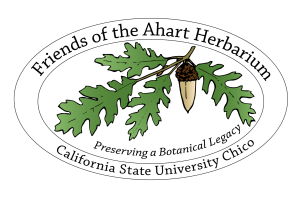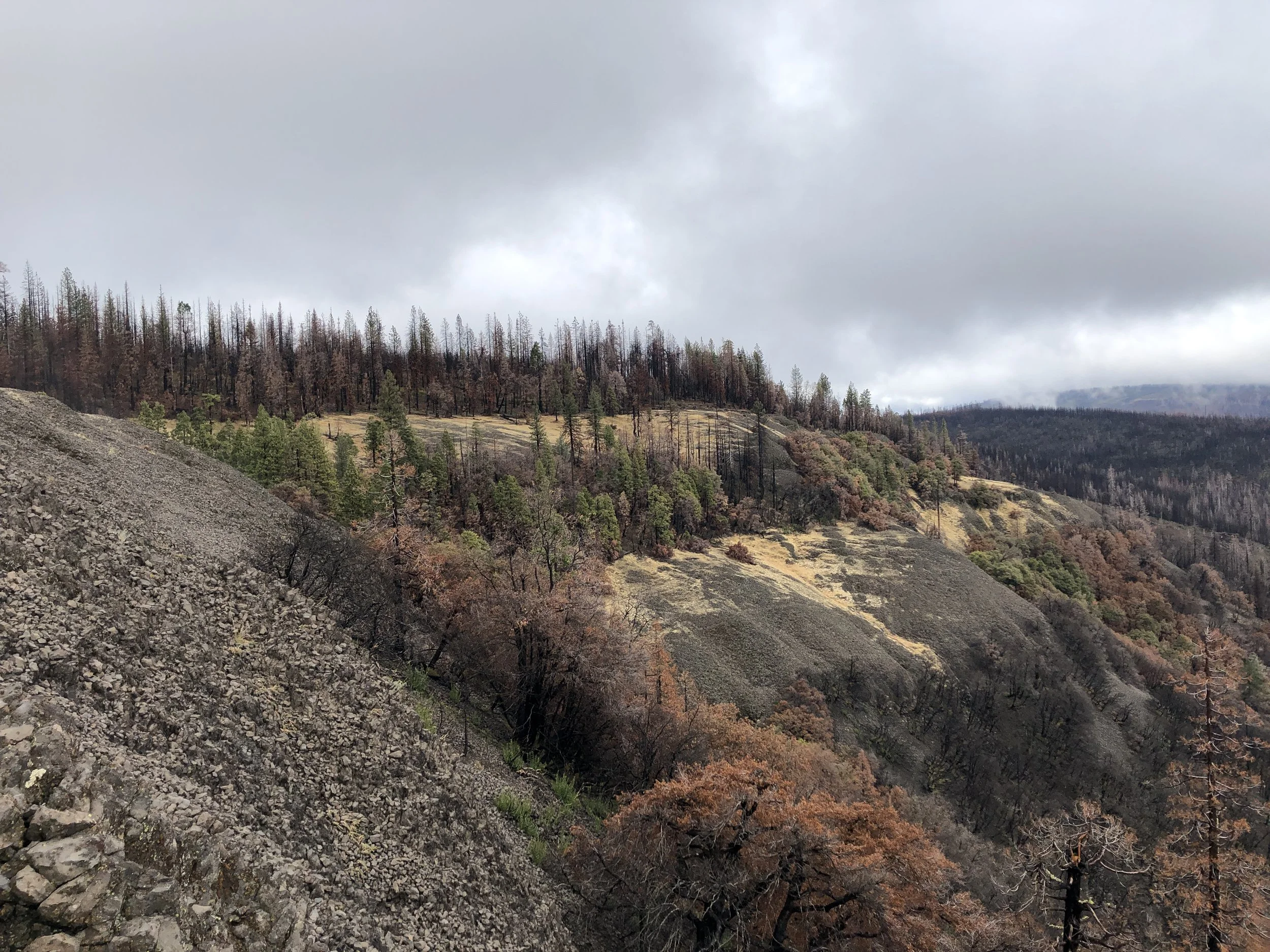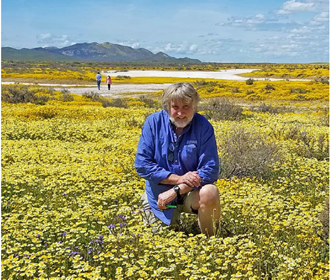Friends of the Ahart Herbarium Annual Meeting and Special Presentations
Thursday, October 16, 2025
6:30 – 8:00 PM (Via Zoom)
Friends of the Ahart Herbarium Annual Meeting Including a Presentation From Our 2023 Jokerst Student Award Winner:
Priority effects of foliar fungal endophytes in leaf litter decomposition
by Tawny Bolinas
6:30 – 7:00 PM
&
Annual Meeting Keynote:
Evolution of the Fire-Adapted California Flora
by Jon E. Keeley
7:00 – 8:00 PM
Register here to join us on Zoom!
After registering, you will receive a confirmation email containing information about joining the meeting.
Evolution of the Fire-Adapted California Flora
Presented by Jon E. Keeley
Over the past century much has been written on the evolution of the California flora. Drivers of change have focused on the role of climate, topographic relief, and substrates, however the role of fires as a selective force has largely been ignored. Macrofossil data provide convincing evidence that fires have been a regular feature of California landscapes throughout the Cenozoic. Understanding how fire has shaped plant adaptations requires recognition of the different fire regimes in a range of ecoregions in the state. In this presentation I will explore fire regimes in herbaceous, shrubland and forest types throughout the state and how different regimes have selected for different fire-adaptations. Some traits such as vegetative resprouting from burned skeletons appear to be quite ancient and not always associated with fire. Others such as the basal burls (lignotubers) that give rise to postfire resprouts in a few genera, as well as smoke-stimulated seed germination of soil stored seed banks evident in both woody and herbaceous taxa, date to the Miocene and are associated with the rise of the Mediterranean climate, which increased fire predictability. Looking forward I will discuss how global changes are likely to alter fire regimes and their impact on different fire response types.
Jon E. Keeley, is Senior Research Scientist with the U.S. Geological Survey, adjunct professor at UCLA, research associate with the California Botanic Garden, former program director at the National Science Foundation, recipient of a Guggenheim Fellowship and is an Ecological Society of America Fellow. The California Botanical Society dedicated their 2025 volume of Madroño to him and this same year the Southern California Horticultural Society awarded him (with his wife Melanie) Horticulturist of the Year. He has spent sabbaticals in all five Mediterranean climate regions of the world. His research has focused on the evolution of fire-adaptive traits, ecological life history strategies of plants and role of global changes in climate and population growth on management of fire-prone ecosystems. In addition, he has done extensive research on photosynthetic pathways in vernal pool plants and is co-author of the The Jepson Manual treatments for Isoetes and Arctostaphylos. He has over 400 publications, which have garnered more than 47,000 citations. He is senior author of a 2012 Cambridge University Press book Fire in Mediterranean Climate Ecosystems: Ecology, Evolution and Management.
2023 Jokerst Student Award Winner: Priority effects of foliar fungal endophytes in leaf litter decomposition
Presented by Tawny Bolinas, 2023 Jim Jokerst Field Botany Grant Award Winner
Foliar endophytic fungi live inside plant leaves and are invisible to the unaided eye. These fungi can defend against pathogens and help plants retain water in arid environments, but many of their ecological roles remain unclear. We hypothesized that certain endophytes persist in leaves as dormant commensals, becoming active upon senescence to initiate decomposition and influence subsequent fungal community assembly via priority effects. We tested this through a 36-week field experiment using Quercus lobata leaf litter in mesh bags exposed to different fungal treatments. Using high-throughput sequencing, we tracked fungal community shifts and found that while distinct taxa were associated with each treatment, decomposition rates were similar. Site-level effects and stochastic processes played a larger role in shaping community composition than endophyte presence. Our findings suggest that endophytes exert weak priority effects under natural conditions and highlight the complexity of fungal interactions in litter decomposition.
Tawny Bolinas is a first-generation immigrant from the Philippines, now based in California. She holds a B.S. in Cellular and Molecular Biology and an M.S. in Biological Sciences from California State University, Chico. Under the mentorship of Dr. Gerald M. Cobián, her graduate research in fungal ecology explored the ecological roles of foliar fungal endophytes, with a particular focus on how the order of their arrival influences leaf litter decomposition in Quercus lobata (valley oak) leaves. Tawny probably ranks among the top earners of merit scholarships, awards, and honors during her baccalaureate and graduate programs at Chico State.



